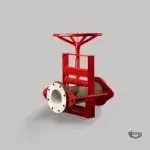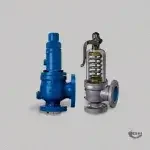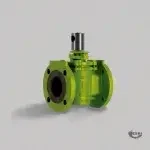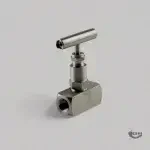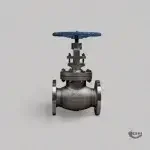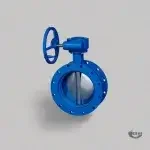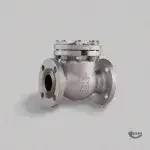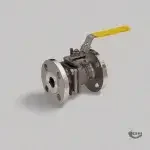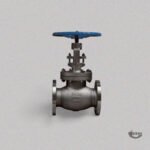Best Valve Dealer & Supplier in India
We are leading Valve Dealer & Supplier and we offer our valves in a wide variety and different dimensional size ranging up to 6800NB.
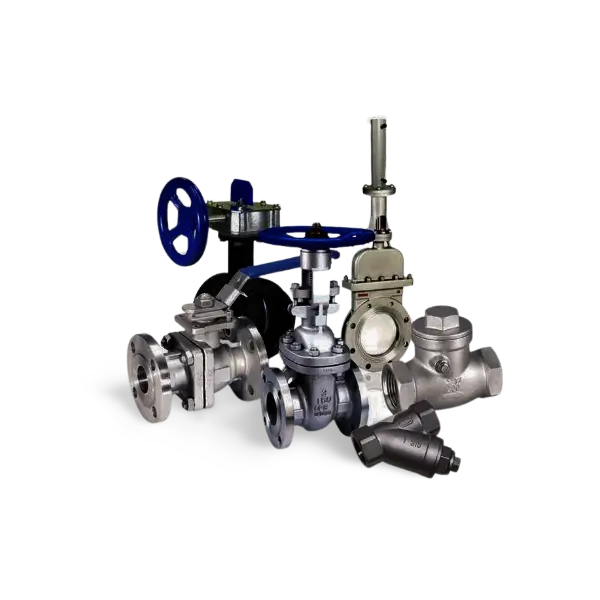
Table of Contents
Teshi Group : Leading Manufacturer, Stockist, Supplier, and Exporter of Valves in India.
Teshi Group stands as a premier manufacturer, stockist, supplier, and exporter of valves in India, renowned for delivering precision-engineered products that meet the highest standards of quality and reliability. Our extensive range of valves is crafted to serve diverse industrial applications, catering to the precise needs of sectors such as oil & gas, petrochemical, power generation, chemical, pharmaceutical, and marine industries. We take pride in offering a broad spectrum of valve types, including ball valves, gate valves, globe valves, check valves, and butterfly valves, each meticulously designed to provide robust performance under demanding conditions. Our commitment to quality is reflected in our ISO 9001:2015 certification, and we adhere to stringent international standards, ensuring our valves deliver maximum efficiency, durability, and safety. At Teshi Group, innovation and quality control are central to our operations; our valves undergo rigorous testing processes to guarantee optimal performance and reliability. With advanced technology and a dedicated engineering team, we continually strive to refine our products, aiming to set new benchmarks in the valve manufacturing industry. As a trusted partner for clients across India and globally, we prioritize customer satisfaction by offering customized solutions, on-time delivery, and exceptional post-sale support. Driven by excellence, Teshi Group is committed to enhancing industrial infrastructure with valves that ensure seamless operations, providing clients with solutions that contribute to both efficiency and safety across various applications.
About Valves :-
Valves are essential components in industrial and mechanical systems, designed to control, regulate, or direct the flow of fluids—liquids, gases, and slurries—within piping systems. Functioning as key devices in controlling the pressure, volume, and direction of media flow, valves are critical across diverse applications such as oil and gas, chemical processing, water treatment, power generation, and manufacturing industries. They come in a wide variety of types, each tailored to specific functions and operating conditions, including gate valves, globe valves, ball valves, butterfly valves, and check valves, among others. These valves are engineered with precision to meet stringent performance, safety, and reliability standards, as they often operate under demanding conditions such as high pressure, extreme temperatures, and corrosive environments. Materials used in valve construction are carefully chosen based on the application’s requirements, ranging from stainless steel and carbon steel to specialized alloys and polymers, ensuring durability and optimal performance. Valves also incorporate advanced sealing technologies to prevent leaks, maintain system integrity, and support efficient operation. With the integration of automation and smart technologies, modern valves are often equipped with actuators and sensors, enabling remote operation and real-time monitoring for improved control and efficiency. In any system where flow control is essential, valves serve as critical elements, supporting not only the functionality of the system but also its safety, reliability, and longevity.
Teshi Group is an ISO certified Valves manufacturer & distributor in India.
Valves Specification, Grades & Material
Specification | |
|---|---|
Valve Types |
The Pinch Valve, Pressure Relief Valve, Plug Valve, Needle Valve, Gate Valve, Butterfly Valve, Check Valve, Ball Valve, Globe valve |
Schedule |
SCH5, SCH10, SCH20, SCH30, SCH40, STD, SCH80, XS, SCH60, SCH80, SCH120,SCH140, SCH160, XXS |
Standard |
ASME/ANSI B16.11, MSS-SP-97, MSS-SP-79, JIS B2316, BS 3799 |
Size |
1/8″NB to 24″NB & 1/4″OD TO 24″OD AND 6.35mm to 254mm OD Thickness: 0.6mm to 20mm |
Type |
Welded, threaded, BW, SW. |
Grade | |
|---|---|
Stainless Steel |
ASTM /ASME A/SA 213 / 249 / 269 / 312 / 358 CL. I to V – 304 , 304L , 304H, 309S ,309H , 310S, 310H , 316 , 316TI , 316H , 316 LN , 317 , 317L , 321 , 321H , 347 , 347 H , 904L . |
Duplex Steel |
ASTM/ASME A/SA 789, 790 – UNS NO S 31803, S 32205, S 32550, S 32750, S 32760. |
Carbon Steel |
ASTM A106 Gr. A, B & C API 5L Gr. A / B, X42 ,X52 ,X60 ASTM A 53 Gr. A/B |
Alloys Steel |
ASTM /ASME A/SA 213 / 335 / 691 – P5,P9,P11,P12,P22,P91 |
Nickel Alloys |
Nickel Alloys 200, Nickel Alloys 201 |
Hastelloy |
Hastelloy C-22, Hastelloy C-276, Hastelloy C-2000, Hastelloy C-4, Hastelloy X, Hastelloy B, Hastelloy N, Hastelloy G |
Inconel |
Inconel 600, Inconel 601, Inconel 625, Inconel 625LCF, Inconel 686, Inconel 718, Inconel 800, Inconel 825, Inconel X-750 , Inconel 690, Inconel 602, Inconel 617, Inconel 925, Inconel A-289, Inconel AL-6XN, AL-904L |
Valves Packaging & Delivery Details
Pay Mode Terms- L/C (Letter of Credit), T/T (Bank Transfer), Other
Port of Dispatch- Any Port from India
Packaging Details- Valves are packaged with caution and safety so they reach our client’s as good as he would expect. Packaging Charges Extra.
Tax- 18% GST only for domestic delivery. No GST for other countries.
Frequently Asked Questions
Most frequent questions and answers
What is the primary function of a valve in a piping system?
A valve regulates the flow of liquids or gases in a piping system by opening, closing, or partially obstructing passageways. Valves control system pressure, direct flow, and prevent backflow, playing a crucial role in the safety and efficiency of fluid-handling systems.
What types of valves are commonly used in industrial applications?
Common types of industrial valves include gate valves, ball valves, globe valves, butterfly valves, check valves, and pressure relief valves. Each type is designed for specific purposes, such as on/off control, flow regulation, or pressure relief.
What is the difference between a gate valve and a ball valve?
Gate Valves: Use a gate-like disc that moves up and down to start or stop the flow. They are ideal for on/off applications but not for flow regulation.
Ball Valves: Use a rotating ball with a hole through it to control flow. They offer quick shut-off and are easier to operate than gate valves, especially in high-pressure applications.
How do I choose the right valve material?
Choosing the right valve material depends on factors like the type of fluid, operating temperature, and pressure. Common materials include stainless steel, carbon steel, brass, and PVC. For corrosive fluids, stainless steel or special alloys may be ideal, while PVC valves are suitable for low-pressure and non-corrosive applications.
What is a check valve, and where is it used?
A check valve allows flow in one direction only, preventing backflow. It’s commonly used in water systems, pumps, and heating systems to ensure fluid moves in the correct direction and to protect equipment from damage caused by reverse flow.
What is a globe valve used for?
Globe valves are designed for precise flow regulation. They allow fluid flow to be adjusted incrementally and are commonly used in applications requiring flow control, such as cooling water systems and fuel oil systems.
How does a pressure relief valve work?
A pressure relief valve releases excess pressure when it exceeds a set limit, ensuring system safety. It’s essential in boilers, compressed air systems, and other high-pressure applications to prevent damage from over-pressurization.
Are there specific valves for high-temperature applications?
Yes, valves for high-temperature applications are typically made from materials like stainless steel or carbon steel and feature special seals that can withstand high heat. Examples include gate valves and globe valves designed for steam or heated fluid applications.
What is a butterfly valve, and how does it work?
A butterfly valve uses a rotating disc to open or close the flow path. It’s popular in large-diameter applications due to its compact design and is often used in water treatment, chemical processing, and HVAC systems.
How do ball valves provide a leak-proof seal?
Ball valves achieve a leak-proof seal by using a spherical disc with a hole through the center, which rotates to align or block flow. When fully closed, the ball presses tightly against the seat, preventing leaks. This makes ball valves ideal for applications where a reliable shutoff is required.
Can valves be used in food and beverage processing?
Yes, valves like sanitary ball valves and butterfly valves are used in food and beverage processing. These valves are made of stainless steel and designed to meet sanitary standards, ensuring no contamination and easy cleaning.
What is an actuator in a valve system?
An actuator is a device that automatically operates the valve. Actuators can be manual, pneumatic, hydraulic, or electric, allowing remote control and automation in systems requiring frequent valve adjustments.
Can valves be customized for specific applications?
Yes, many valves can be customized to meet specific application requirements. This includes selecting different materials, seals, sizes, and pressure ratings. Customization is common in industries like oil & gas, pharmaceuticals, and chemical processing.
How do I maintain valves for optimal performance?
Regular valve maintenance includes inspecting for wear, lubricating moving parts, and cleaning any buildup. Proper maintenance ensures valves operate effectively, prevents leaks, and extends the lifespan of the valve.
What are solenoid valves, and where are they used?
Solenoid valves use an electric coil to control the valve’s opening and closing. They are commonly used in automated systems, including HVAC, irrigation, and industrial machinery, where remote or automatic control of fluid is needed.
What is the purpose of a three-way valve?
A three-way valve has three ports for fluid entry or exit. It’s used in applications that require redirection of flow, such as mixing or diverting fluids. Three-way valves are often found in temperature control systems and hydraulic systems.
Are valves suitable for corrosive fluids?
Yes, valves made from corrosion-resistant materials like stainless steel, PVC, or special alloys are ideal for handling corrosive fluids. Valves used in chemical processing often have specialized linings or coatings to prevent corrosion.
How do pneumatic valves operate?
Pneumatic valves use compressed air to open or close the valve, making them ideal for automated systems where electrical operation might be hazardous. They’re commonly used in industrial and manufacturing settings.
Can valves reduce pressure in a system?
Yes, pressure-reducing valves are specifically designed to lower the pressure within a system to a safe level, often used in water distribution and HVAC systems to prevent high pressure from damaging equipment.
Are ball valves better than gate valves for gas applications?
Yes, ball valves are generally preferred over gate valves for gas applications because they provide a tighter seal, faster operation, and are less likely to leak, making them more reliable for controlling gas flow.

